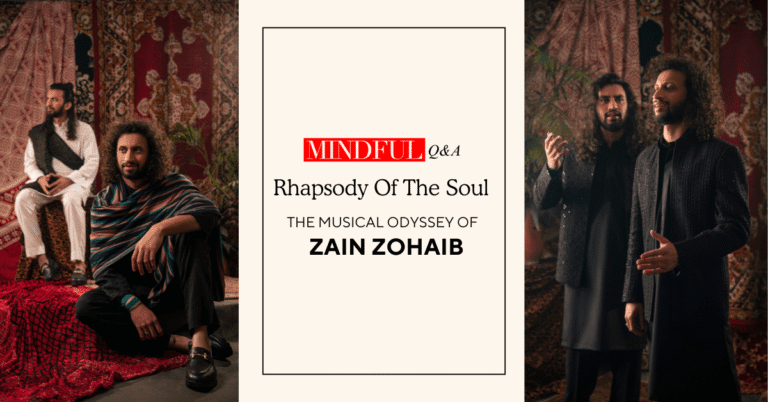Hailing from Lahore, Pakistan, brothers Zain and Zohaib are breathing new life into the centuries-old tradition of qawwali. Grandsons of the revered Ustad Haji Rehmat Ali Khan—who shared the stage with the legendary Ustad Nusrat Fateh Ali Khan for over four decades—the duo carries a profound musical legacy in their blood. But what sets Zain Zohaib apart is their ability to bridge the gap between the sacred and the contemporary.
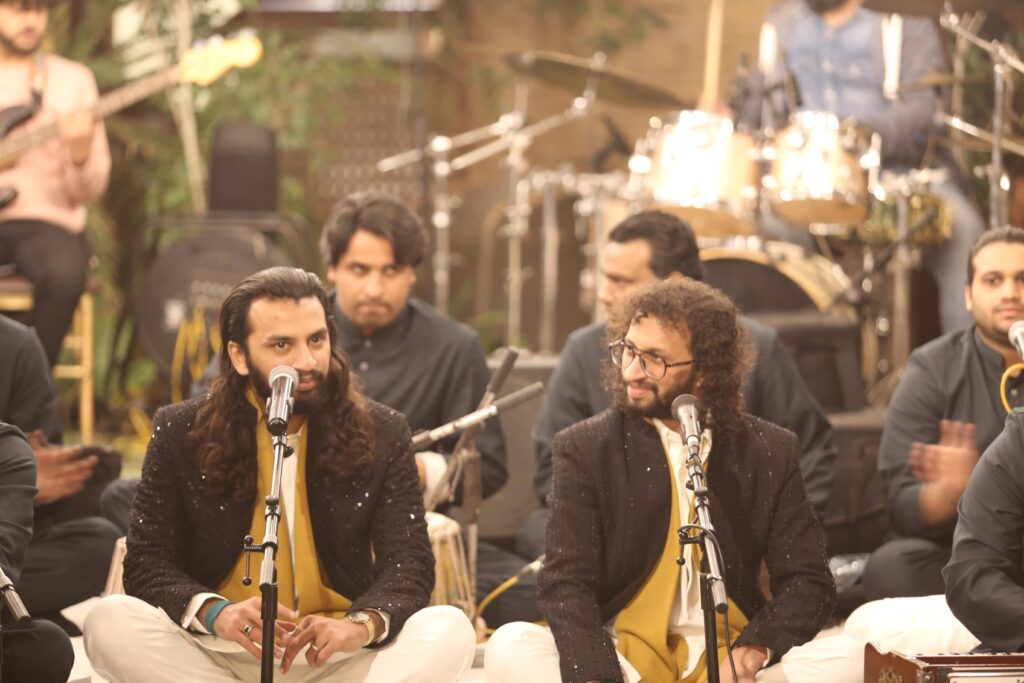
In this exclusive interview, we sit down with Zain Zohaib to talk heritage, innovation, and what it means to be the new face of an ancient art form.
What is your personal connection with music, and how would you describe the role it plays in your life?
First of all, we’re truly grateful—Alhamdulillah, it’s all by the grace of God. We still don’t fully understand our own worth; everything we have is because of Him. For us, music is life—it’s our breath. We simply can’t live without it. It’s not just something we do; it’s something we live and travel through. Right now, Alhamdulillah, we’ve been on the road for the past six or seven months, and it’s all because of music.
Our sleep happens in the car, our rehearsals and thoughts revolve around music even while we travel. It’s all part of the journey, and that journey itself is music. Whether we’re sitting, eating, moving, or resting—everything in our lives is connected to music.
When you say that everything is music, I’d love for you to share more with our readers. This connection goes way back—your family has deep roots in qawwali and music, and I believe they’re still very much involved. What has that journey been like for you?
Our family’s connection to qawwali spans over a hundred years. Our forefathers dedicated their lives to this tradition. Our grandfather, Ustad Haji Rehmat Ali Khan, played second harmonium alongside Ustad Nusrat Fateh Ali Khan and remained with him throughout his life.
After him, our uncle, Ustad Faiz Ali Faiz, carried the torch. He continues to perform traditional qawwali, and may Allah keep him in good health and spirits. Now, Alhamdulillah, the responsibility has come to us—to take this legacy forward.
We’re simply trying to honor the name and contributions of our elders. We keep experimenting and creating, and with the love and support of our listeners, we hope to continue this journey. If people connect with our work, then that’s a blessing from Allah.
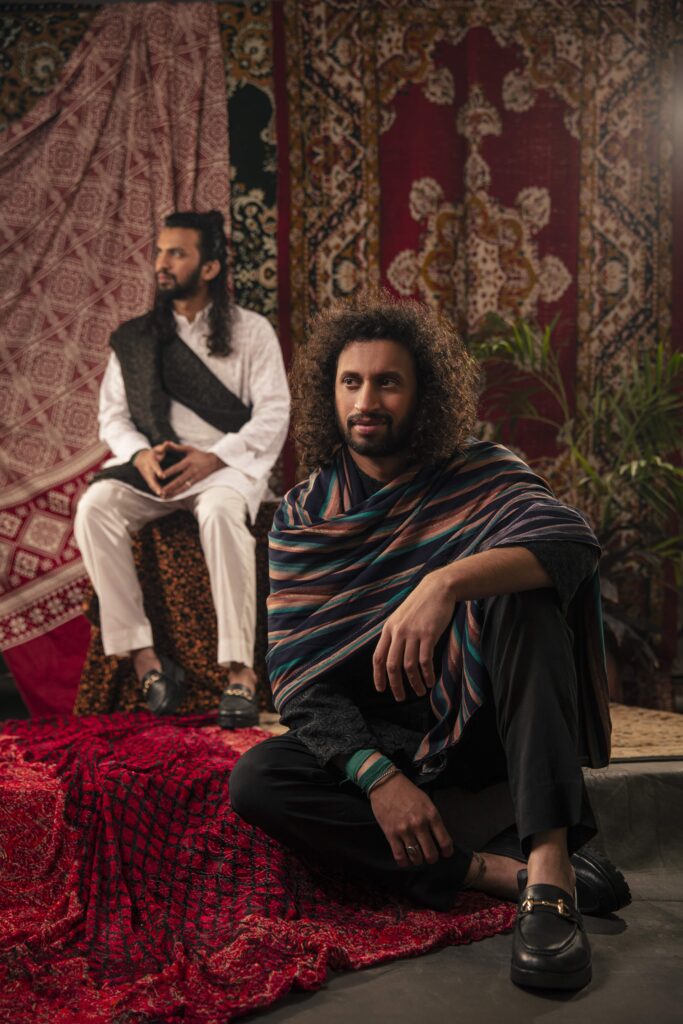
You’re carrying forward your family’s name beautifully. What does qawwali mean to you personally? What drew you to this genre in the first place?
Qawwali, to be honest, is not easy—especially for people of our generation and in this era. It’s a very challenging art form to carry forward. But sometimes we feel that we didn’t choose qawwali—qawwali chose us.
We don’t see ourselves as capable or worthy in that way. We don’t think we have the capacity or the understanding to truly grasp its depth. And maybe we never will. But it’s purely by the grace and mercy of Allah that this path opened up for us, and somehow, qawwali found its way to us.
If we’re not mistaken, you’re the youngest qawwali band in South Asia and have earned a remarkable name for yourselves—not just in Pakistan, but across the region. Was there a defining moment in your career when things shifted? Something that really stayed with you?
Yes, absolutely. One of the most defining moments for us was our first tour of the UK. Alhamdulillah, we’ve had the honor of performing all over the world, but the UK has a special charm—it has a unique audience with a deep connection to this music.
Our very first show there was at Alexandra Palace. We were told it was a theatre, but we had no idea what to expect. Backstage, we were asking our manager, “Has anyone even shown up? What’s going on?” He just smiled and said, “Go see for yourselves.”
When we stepped backstage and heard the host announce our Dada Jee’s name and then felt the audience erupt in applause, we were overwhelmed. That moment touched us deeply. It was the first time we truly felt the weight and the beauty of the legacy we carry. It felt like everything our Dada Jee taught us, all the hard work and love he poured into us, had come full circle. Somewhere in our hearts, we felt he must be smiling, watching over us.
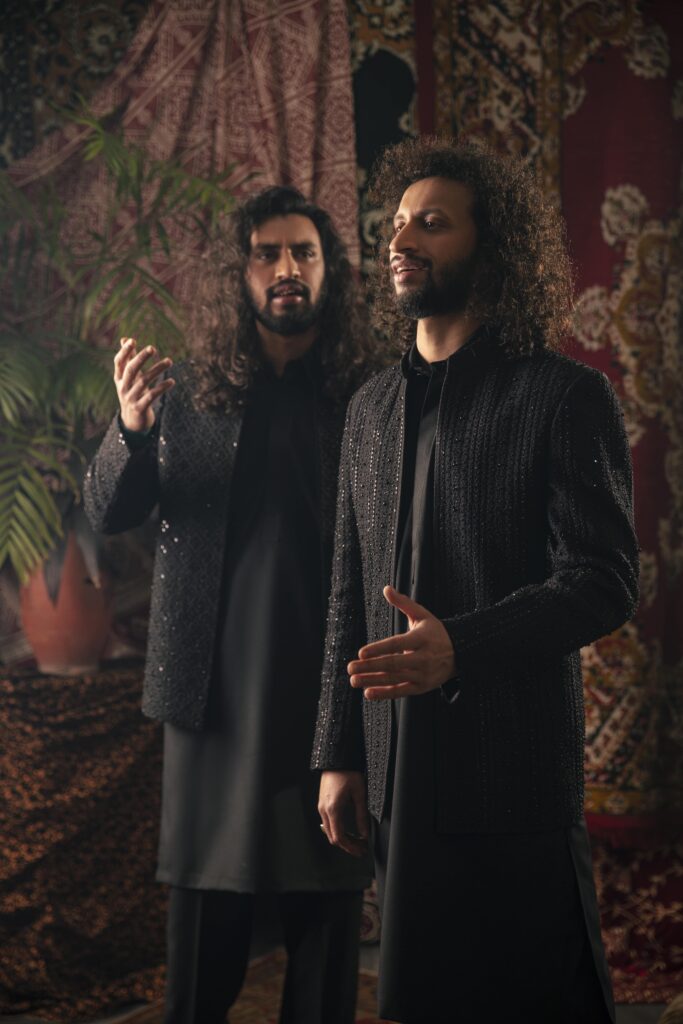
That moment… we’ll carry it with us for the rest of our lives.
Q: As you mentioned, choosing qawwali at a young age and making it relevant today is no small feat. Your music blends tradition with a modern touch—how has the youth responded to it?
A: There are many factors, but the biggest credit goes to our mother. She made sure we completed our education first, no matter how demanding music was. And honestly, music doesn’t allow you to focus on anything else—it’s a full-time commitment.
Studying in colleges and universities gave us direct exposure to what the youth connects with. That helped us understand how we could bring subtle innovation to qawwali—without changing its soul. Qawwali will always be qawwali, but we realized we could present it in a way that resonates with younger listeners.That journey eventually led to Haiderium in 2019, which was a breakthrough for
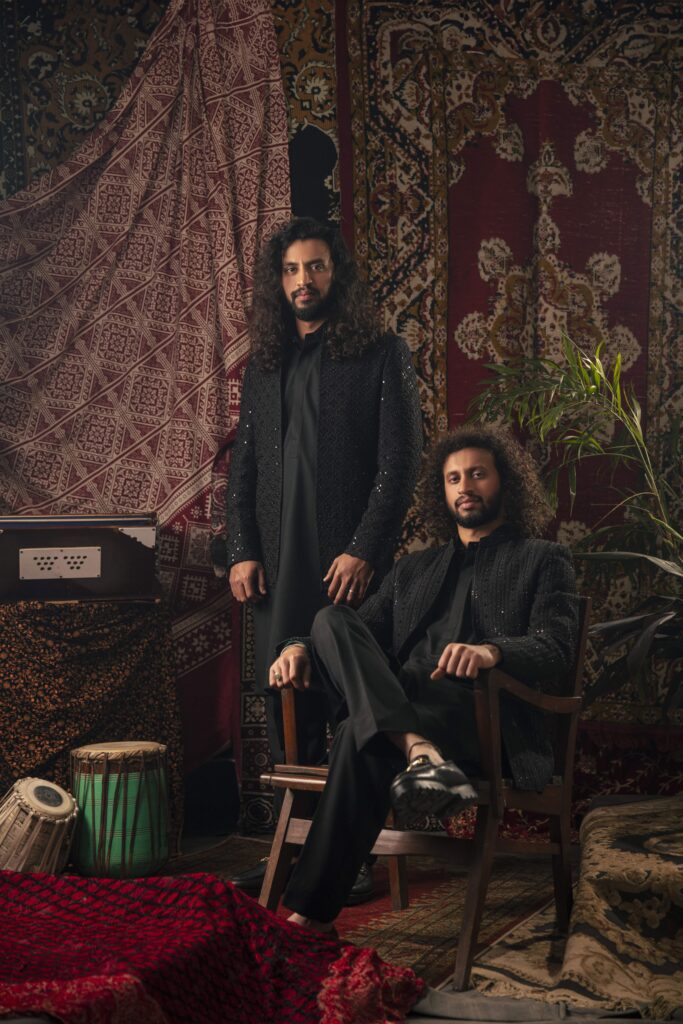
us. It was a reflection of everything we’d learned—how to blend traditional qawwali with modern instruments and sensibilities. And Alhamdulillah, the response from the youth has been beautiful.
We often hear that qawwali training is intense. Can you share a moment or experience that reflects that?
Qawwali has many styles, and our base is the strong, expressive Punjabi style. We were lucky to learn from our grandfather, Dada Jee, who taught us classical music—ragas, taal, and the core of qawwali.
After he passed away, our training didn’t stop. We turned to recordings, listened to greats like Ustad Salamat Ali Khan, Ustad Ameer Khan, Ustad Mehdi Hassan, and of course,Ustad Nusrat Fateh Ali Khan. We studied their work deeply.
And honestly, we learn from everyone—from classical legends to contemporary artists like Atif Aslam, even Michael Jackson. Because music is an endless journey. We still consider ourselves to be students; always listening, always learning—because that’s the only way to grow in this art.
What should Zain Zohaib’s fans look forward to next?
A lot is on the way, InshaAllah. We’re constantly creating—because if there’s one thing we’ve learned, it’s to never stop.
We recently completed an album that’s pure, traditional qawwali—recorded live, in one take, just like Ustad Nusrat Fateh Ali Khan used to do. No cuts, no edits. We wanted to bring that raw, powerful style back.
Alongside that, we have several new projects and songs coming, including some with modern influences. So yes—stay tuned, there’s a lot to come!
Lastly, since you’ve been influenced by such musical legends, is there any advice from your parents or grandparents that still guides you?
Yes, definitely. We’ve learned a lot from our elders—their love, prayers, and presence have meant everything. The biggest lessons have been discipline, kindness, and humility.
They always told us: stay grounded, be patient, and keep walking your path. What’s meant for you will come, and what isn’t, won’t—no matter how hard you try. That advice has stayed with us.



